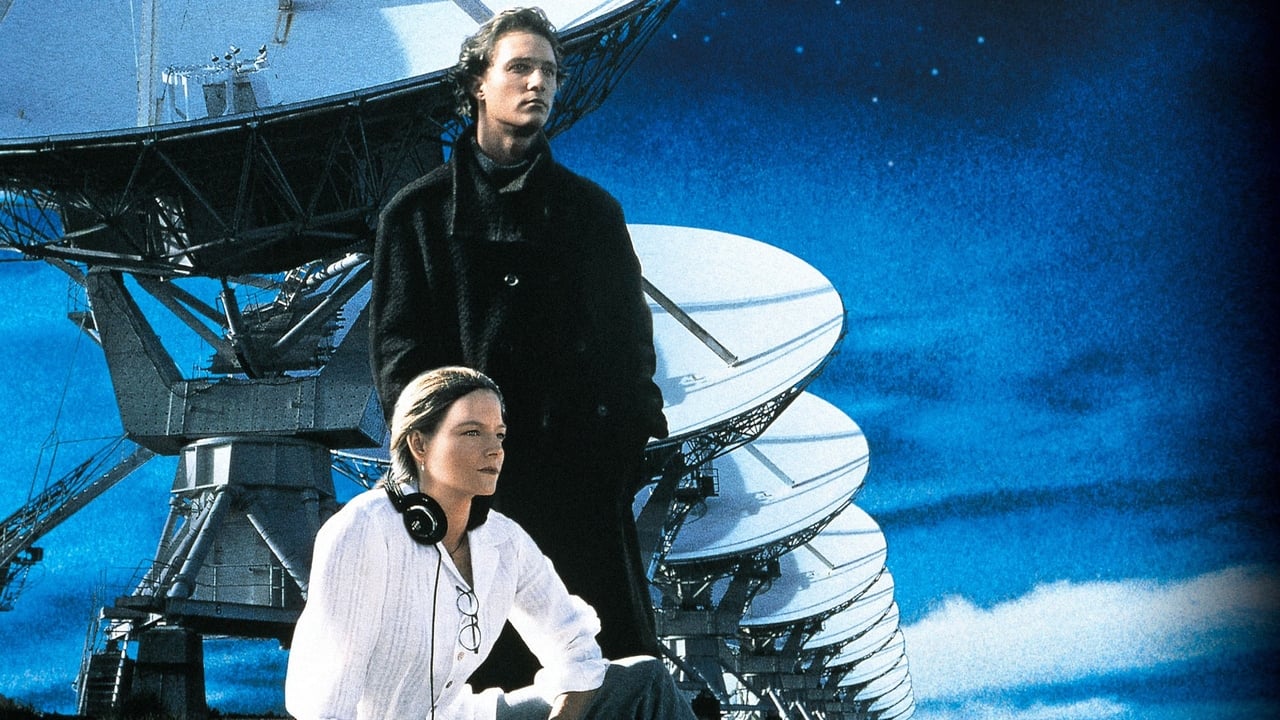



Wow! Such a good movie.
Awesome Movie
An Exercise In Nonsense
It's one of the most original films you'll likely see all year, which, depending on your threshold for certifiably crazy storylines, could be a rewarding experience or one that frustrates you.
View MoreRobert Zemeckis's Contact is based on Carl Sagan's famous novel by the same name and it is one hell of a film. Rightly called the thinking man's science fiction this movie contains many awe inspiring scenes. The opening shot which pans back into space, quietly humbling us by reminding our insignificance, the transmission and receiving of the signal, the machine and teleportation of Jodie Foster in it to meet the "makers", this film is filled with such scenes and joining them together is a fantastic story with an excellent pacing. Contact polarized critics but this is a very good film and features some great performances by Jodie Foster, Mathew Mcconaughey and others.
View MoreI don't doubt that someday, probably not during my lifetime, but someday, we will eventually make contact with beings from a planet or universe beyond our own. I do subscribe to the belief that out of all the infinite and limitless yada, yada, yada, that there's some kind of intelligence out there. However I don't think it will occur via a captured video transmission of Hitler opening the 1936 Olympics. Just a little of my own input on that.I didn't expect this movie to take the tack that it did with such a strong religion versus science undercurrent. It was prevalent throughout and was the basis on which Dr. Ellie Arroway (Jodie Foster) was disqualified from taking part in the original 'Machine' mission; she didn't believe in God. A couple decades down the road from when this picture was made, her position probably would have made her a most likely candidate. I don't know if there's a place for faith to work hand in hand with science, but if one believes in a God as a Supreme Being, there's probably some leeway to acknowledge both disciplines.The film had sort of a Twilight Zone type ending when one of the NASA administrators stated that Ellie's video recording on her ride through the wormholes had eighteen hours of static. Though the point is made with the viewer for a bit of an ironic twist, apparently Dr. Arroway wasn't told about it, at least not the way the film implied. That seemed to be a gross deception, but oddly supports the fact that she received even more additional funding to carry on her SETI research, even while most of her scientific testimony seemed to be disregarded. The dichotomy there bothered me.I was curious about the use of Bill Clinton's image in the story, commenting on the Vega discovery. Shortly after the movie's release, the Clinton White House complained about the use of a taped news conference from 1996 where he was talking about a rock that was believed to have come from Mars. Though the footage was obviously used apart from it's original context, the matter went no further and the film was not re-edited to remove the questionable scene. Knowing now what we do about the Clinton's obsessive regard for money, it's possible that the reason the President was so upset was because he wasn't paid to appear in the movie.
View MoreEvery now and then I pop the Blu-ray Disc into my player and sit back to watch for 2 hours of some of the best material to come out of Hollywood. Contact takes you through the first contact in a way that we can only hope will happen, gradually and measured vs the abruptness of Arrival. We get educated about science and only the master of Carl Sagan could deliver and explain it and make it so awe inspiring. We're an interesting species, did you know that? " Full of beautiful dreams and such terrible nightmares ". What a wonderful way to capture humanity.I can only hope our first contact will be as well done as this movie.
View MoreHonestly, I love science fiction and you always find the idea religion versus science is something very fascinating. I also like to see Jodie Foster the rest of the cast is also great. But aside from a pretty good opening scene, there is not much good that I can say about this movie, the technical aspect was really top notch and the film has 2 of the best camera shots I've ever seen in life anyway I hate this movie. The movie is not really bad or somehow I just do not like the attitude I have a real problem with the message and it uses the very movie crew I despise. I do not want to talk badly about the director or the actors because they are doing their best, I rather want to trash the scriptwriter. I hate him the most because of the combination of things that happen here. (I know that the movie is based on a novel but that does not matter.) So my conclusion is great idea, fantastic camera work, awesome effects but the less I hear from this movie and see for the rest of my life the better. Because I can really feel how the bile slowly comes up every time when someone reminds me of this movie. The fact that the foundation seems made for me, however, the facade and the roof only consists of things that I despise is simply the greatest impudence.
View More